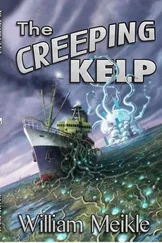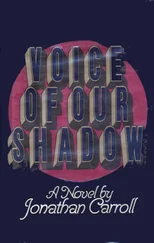“And Johnson will have spirited everything away somewhere,” Lockwood said. “The Rotwell Institute is based in Westminster, isn’t it, Hol?”
“That’s its head office, but not much goes on there. All its research facilities are outside London. There are several. I can’t remember them all offhand—sorry.”
Lockwood nodded ruefully. “Several facilities…That’s difficult. Do you think you could draw up a list for me? Might be useful, though to be honest I have no idea how we should proceed….” He sighed. “In the meantime, we’ve got a more pleasant appointment to keep. Penelope Fittes’s secretary rang first thing, Luce. You know she wants to thank us for the Ealing Cannibal case? Seems she’s out and about this morning, visiting the Orpheus Society, of which she’s patron, and wonders if we’d like to meet her there.”
“The Orpheus Society? In St. James’s?”
“The very same. Want to come along?”
He didn’t need to ask me twice.
For some time we’d been intrigued by the secretive and exclusive Orpheus Society, an outfit in central London whose members included many of the country’s most prominent industrialists. Officially, it was an upmarket London club devoted to discussion and research of the Problem, but we happened to know that it was engaged in more practical activities, too. George possessed a curious pair of crystal goggles marked with the society logo, an ancient Greek harp or lyre. Exactly what these goggles did had never been established; it was clear, though, that the Rotwell Institute was not the only organization developing equipment to use in the endless battle against the Problem. Unlike the institute, however, the society did not publicize its work, and the chance to learn more about it had never come up—until now. It was an opportunity not to be missed. Later that morning, leaving Holly to research the Rotwell Institute, Lockwood, George, and I set out later that morning for St. James’s in a mood of eager anticipation.
We found the society at the end of an elegant cul-de-sac, a quiet street of stuccoed townhouses, where the brass plates on the pillars gleamed spotlessly and the flowers in the hanging baskets beneath the hotel windows bloomed with plush, complacent health. The plaque gave the name without pomp or fanfare; and at our knock the door was opened at once by a smiling old man, who bowed and gestured for us to enter.
“Come in, come in, and welcome. I am the secretary of the society.”
The secretary was an amiable white-haired gentleman, stooped of shoulder but twinkling of eye. He wore a long frock coat and starched collar in an old-fashioned style, and his hair was swept back generously from an impressive forehead. We stood with him in a small, cool foyer. The floor was marble, the walls a deep maroon. Beyond him, an elderly man and woman were walking down a staircase. Somewhere nearby, a clock was ticking.
“We’re here to see Ms. Penelope Fittes, sir,” Lockwood said. “My name is Anthony Lockwood. These are my colleagues, George Cubbins and Lucy Carlyle.”
The old man nodded. “I was told to expect you. Dear Penelope is in the reading room.” He continued to gaze at Lockwood. “So you are Celia and Donald’s boy? I believe I’ve read about you in the Times . Yes, yes, I think I see them both in you.”
“Did you know them, sir?” Lockwood asked.
“Oh, indeed. They were candidates for membership in the society once. In fact, they gave a most interesting lecture in the very room I’ll be taking you to now. ‘Ghost Lore among the Tribes of New Guinea and West Sumatra,’ or something of that nature. They were folklorists, of course, perhaps not scientists in the strictest sense of the word….Still, their scholarship was impeccable. Their loss was a great one.”
“Thank you, sir,” Lockwood said. His face was impassive.
“Well, well, you didn’t come to talk to me . It’s just along here.” The old man led the way down a softly carpeted corridor, past paintings of august gentlemen similar to himself. At the end of the passage, a stained glass window let in shafts of yellow and ruby light. Beneath it was a plinth with a stone carving of a simple three-stringed harp. The secretary indicated it. “Perhaps you’ve seen our little symbol?”
“Seen it around,” I said casually. I thought of the pair of goggles back at Portland Row, which we’d stolen from a murderer some time before.
“Orpheus’s lyre,” George added. “That’s what it represents, right?”
“Exactly so. You know about Orpheus, of course,” the secretary said. “Greek fellow from the myths. He was the patron of musicians and of explorers into the unknown.”
“He went down into the underworld, didn’t he?” George said. “In search of his dead wife.”
“Indeed, Mr. Cubbins.” The Secretary turned left down a second corridor, where another aged club member, bald and smiling, stood aside to let us pass. “He sang and played his lyre so beautifully that he could charm the dead—and soothe the fearsome entities that guarded them. He even persuaded Hades, grim god of the underworld, to let his wife go. That is power indeed!”
“So the society takes Orpheus as its inspiration?” said Lockwood, who had been unusually quiet since arrival.
“We, too, seek to find ways of subduing ghosts. We are a motley band of inventors, industrialists, and philosophers—anyone, in fact, with an interesting perspective on the Problem. We discuss, we debate, we work on devices that might stem the ghostly invasion.”
“A bit like the Rotwell Institute, in fact?” George said.
The old man clicked his tongue. His smile became rueful. “Not exactly. The institute is much too… commercial for our tastes. They seek profit above truth. Many of their products are frankly worse than useless. The society is for idealists , Mr. Cubbins. We hunt for real answers. There is a battle to be won—not simply against ghosts, but against death itself.”
“What kinds of devices do you create, sir?” George asked. He had a spark in his eye. I knew he was thinking of the goggles.
“Many kinds! I will give you one example. Young people like you are fortunate—you hear and see supernatural things. But decrepit fellows such as me are powerless after dark. So we hunt for ways to help older folk defend themselves against the spectral foe. We have made progress, built prototypes…but they are not yet ready for public use.”
George nodded slowly. “I see. You’ve built prototypes, have you? Fascinating….”
“Indeed.” The secretary stopped at a dark oak door. “Well, here we are—the reading room.”
“What about Orpheus?” I said. “Did he bring his wife back in the end?”
The secretary chuckled. “No, my dear. No, he did not. He erred, and she remained on the Other Side. How I wish we could ensure the same for our dead friends today.” He pushed the door open and stood back. “The assembled company of Lockwood and Co.!” With that he ushered us in and departed, closing the door behind him.
It wasn’t a very big chamber, the Orpheus Society reading room; if Lockwood’s parents had once given a lecture there, the audience must have been quite small. A band of dark bookshelves encircled a cozy, carpeted space of armchairs and reading tables, randomly arranged. Penelope Fittes sat in a chair by the hearth, staring into the flames. Her long black hair gleamed, her profile might have been carved from alabaster; she was so much younger than any of the other members of the society, her luster almost came as a physical shock. She turned and smiled at us.
“Hello, Anthony,” she said. “Lucy, George. Come and sit down.”
Above the mantel hung a painting in a golden frame: a woman in a low-cut black dress, holding a lantern. Her hair was worn high on top of her head; a fierce light burned in her eyes. It was a face familiar from books and stamps and the postcards they sold in the Strand. It did not have the worn, burned-out look of the photographs at Fittes House.
Читать дальше









